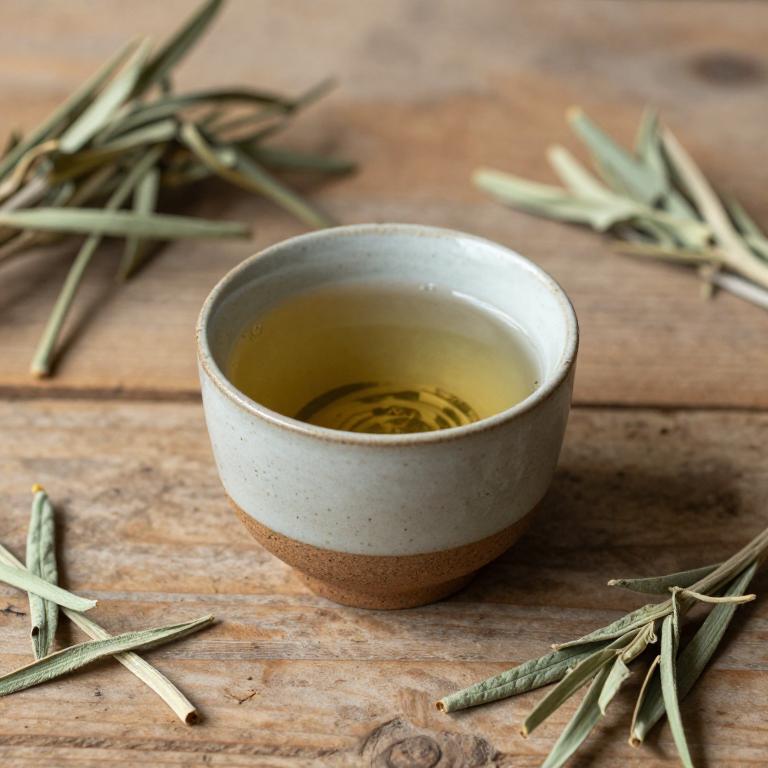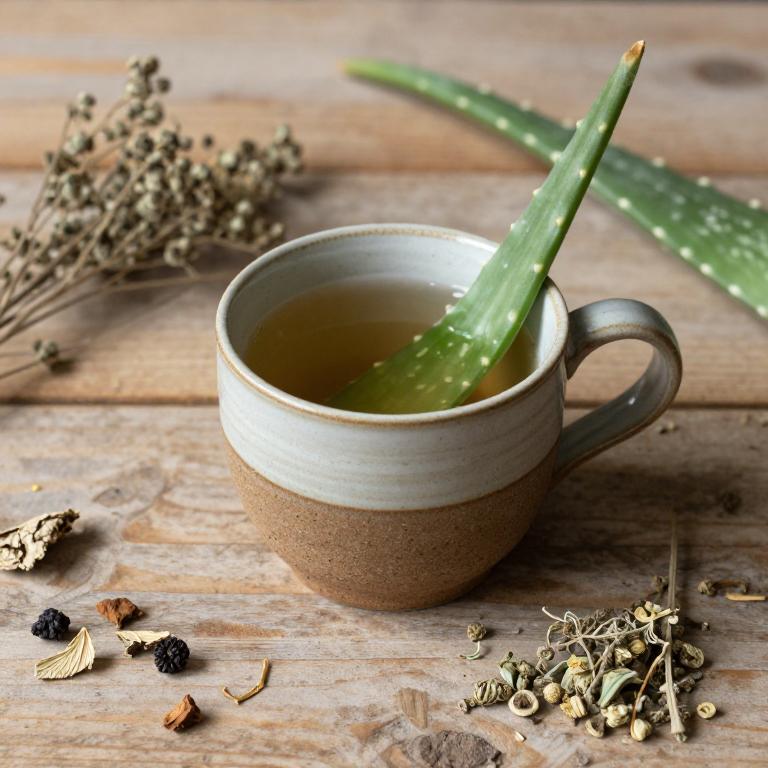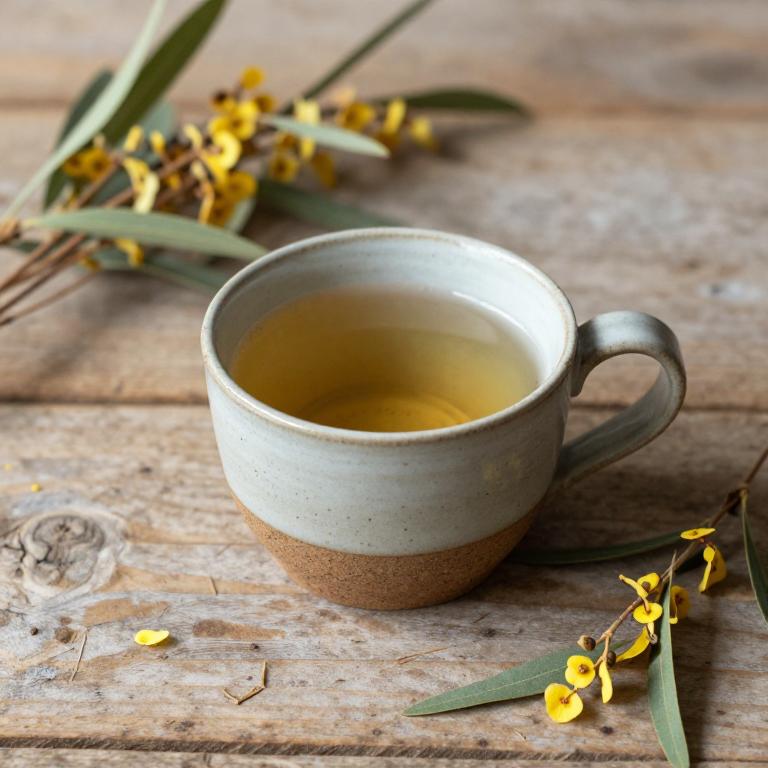10 Best Herbal Teas For Dandruff

Herbal teas have gained popularity as a natural remedy for dandruff due to their soothing and nourishing properties.
Ingredients like nettle, chamomile, and peppermint are commonly used in herbal teas for their ability to reduce scalp inflammation and promote healthy skin. These teas can be applied directly to the scalp or used as a rinse after washing hair, helping to exfoliate dead skin cells and balance oil production. Regular use of herbal teas may help alleviate itching and flaking associated with dandruff without the harsh side effects of chemical treatments.
However, it is advisable to consult a healthcare professional before relying solely on herbal remedies for persistent scalp conditions.
Table of Contents
- 1. Camellia (Camellia sinensis)
- 2. St. john's wort (Hypericum perforatum)
- 3. Rosemary (Rosmarinus officinalis)
- 4. Lemon grass (Cymbopogon citratus)
- 5. Field horsetail (Equisetum arvense)
- 6. Salvia (Salvia officinalis)
- 7. Stinging nettle (Urtica dioica)
- 8. Aloe vera (Aloe barbadensis)
- 9. Melaleuca (Melaleuca alternifolia)
- 10. Thyme (Thymus vulgaris)
1. Camellia (Camellia sinensis)

Camellia sinensis, the plant from which green and black teas are derived, contains bioactive compounds such as catechins and antioxidants that may help reduce dandruff by soothing the scalp and reducing inflammation.
These compounds have antimicrobial properties that can combat the fungal growth of Malassezia, a common cause of dandruff. Herbal teas made from Camellia sinensis can be used as a natural scalp rinse to improve overall scalp health and reduce flakiness. Regular use of these teas may help regulate sebum production and promote a balanced scalp environment.
While not a substitute for medical treatments, Camellia sinensis herbal teas offer a gentle, natural alternative for managing dandruff.
2. St. john's wort (Hypericum perforatum)

Hypericum perforatum, commonly known as St. John's Wort, is a herbal remedy that has been traditionally used for its potential benefits in treating dandruff.
This herb contains compounds like hypericin and hyperforin, which may help reduce inflammation and fungal growth on the scalp. When brewed into a tea, it can be applied topically to the scalp to soothe irritation and promote healthy skin. However, it is important to note that St. John's Wort can interact with certain medications, so consulting a healthcare provider before use is advisable.
Overall, while it may offer some relief for dandruff, it should be used as a complementary treatment alongside proper scalp care and medical advice.
3. Rosemary (Rosmarinus officinalis)

Rosmarinus officinalis, commonly known as rosemary, is a versatile herb that has been traditionally used for its aromatic and therapeutic properties.
Rosemary herbal teas are gaining popularity for their potential benefits in treating dandruff due to their antimicrobial and anti-inflammatory properties. The essential oils in rosemary, such as cineole and camphor, help to reduce scalp irritation and combat fungal growth, which are common causes of dandruff. Regular consumption of rosemary tea may improve scalp health by promoting circulation and reducing seborrheic dermatitis.
However, it is important to consult a healthcare professional before using rosemary tea as a treatment for persistent or severe dandruff conditions.
4. Lemon grass (Cymbopogon citratus)

Cymbopogon citratus, commonly known as lemongrass, is a popular herb used in herbal teas for its potential benefits in treating dandruff.
This aromatic plant contains compounds like citral and myrcene, which have antimicrobial and anti-inflammatory properties that may help reduce scalp infections and inflammation associated with dandruff. When brewed into a tea and applied to the scalp, lemongrass can help soothe irritation and promote a healthier scalp environment. Regular use of lemongrass tea may help reduce flaking and itching, making it a natural alternative to conventional dandruff treatments.
However, it is advisable to consult a healthcare professional before using it, especially if you have sensitive skin or existing scalp conditions.
5. Field horsetail (Equisetum arvense)

Equisetum arvense, commonly known as horsetail, is a herb that has been traditionally used for its high silica content, which can help strengthen hair and scalp health.
When used in herbal teas, it may support the treatment of dandruff by promoting a balanced scalp environment and reducing flakiness. The tea is typically prepared by steeping dried horsetail in hot water for several minutes, allowing the beneficial compounds to infuse into the liquid. While it is generally considered safe when consumed in moderation, it is important to consult a healthcare professional before using it, especially for those with pre-existing health conditions or who are pregnant.
Overall, horsetail herbal tea offers a natural and potentially effective alternative for managing dandruff and improving overall scalp wellness.
6. Salvia (Salvia officinalis)

Salvia officinalis, commonly known as sage, has been traditionally used in herbal remedies for its potential benefits in treating dandruff.
Sage tea, made by steeping the dried leaves of the plant in hot water, is believed to have antimicrobial and antifungal properties that may help reduce the growth of scalp fungi associated with dandruff. The essential oils in sage, such as thujone and camphor, are thought to possess soothing and anti-inflammatory effects that can calm an irritated scalp. When used as a rinse or applied topically, sage tea may help regulate sebum production and promote a healthier scalp environment.
However, it is important to consult a healthcare professional before using sage tea, especially for prolonged periods or if you have sensitive skin.
7. Stinging nettle (Urtica dioica)

Urtica dioica, commonly known as stinging nettle, is a herb that has been traditionally used for its potential benefits in treating dandruff.
When brewed into a herbal tea, stinging nettle may help reduce scalp inflammation and soothe irritation, which are common contributors to dandruff. The tea is believed to support healthy hair growth by providing essential nutrients and minerals that nourish the scalp. To prepare the tea, fresh or dried nettle leaves are steeped in hot water, and it can be consumed internally or applied topically to the scalp.
While more research is needed, some users report improved scalp health and reduced flakiness after regular use of urtica dioica herbal tea.
8. Aloe vera (Aloe barbadensis)

Aloe barbadensis, commonly known as aloe vera, is often used in herbal teas to address dandruff due to its soothing and anti-inflammatory properties.
The gel extracted from the aloe plant contains compounds like vitamins, enzymes, and antioxidants that can help reduce scalp irritation and flaking. When brewed into a tea, aloe vera can be applied topically or consumed internally to support overall scalp health. Its natural antifungal and antibacterial properties may help combat the microorganisms that contribute to dandruff.
Regular use of aloe barbadensis herbal tea may promote a healthier scalp environment and reduce the frequency of dandruff.
9. Melaleuca (Melaleuca alternifolia)

Melaleuca alternifolia, commonly known as tea tree, is a popular ingredient in herbal teas used to address dandruff due to its potent antimicrobial and antifungal properties.
The essential oil extracted from its leaves contains terpenoids, which help reduce fungal infections like Malassezia that are often linked to dandruff. When brewed into a tea, it can be applied topically to the scalp to soothe irritation and reduce flaking. Many commercial shampoos and头皮 treatments incorporate tea tree oil for its cleansing and scalp-soothing benefits.
However, it is important to dilute the oil properly before use, as undiluted tea tree oil can irritate the skin.
10. Thyme (Thymus vulgaris)

Thymus vulgaris, commonly known as thyme, is a popular herb used in herbal teas to address various health issues, including dandruff.
The essential oils in thyme, particularly thymol, possess antimicrobial and antifungal properties that can help combat the fungi responsible for dandruff. When brewed into a tea, thyme can be applied topically or consumed internally to support scalp health and reduce flakiness. Its soothing and anti-inflammatory effects may also help alleviate itching and irritation associated with dandruff.
While thyme tea is a natural remedy, it is advisable to consult a healthcare professional before using it for persistent or severe dandruff conditions.